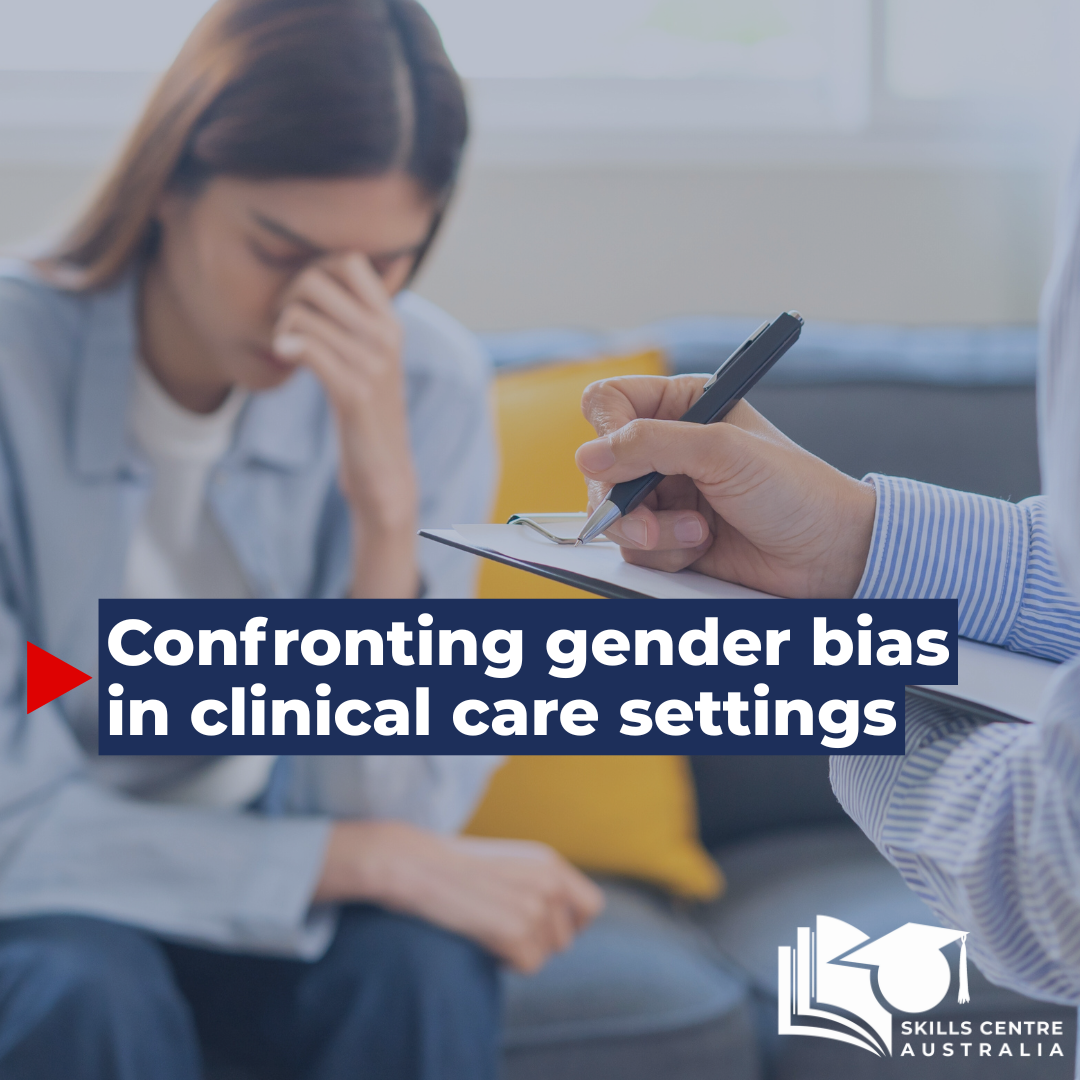Women’s Health Week brings renewed focus to the ongoing challenges women face in accessing equitable healthcare. One critical area of importance, especially for those working in healthcare, is understanding how unconscious gender bias can influence clinical care.

Gender bias in healthcare is often subtle, yet its consequences can be profound. Studies consistently show women are more likely to have their symptoms dismissed, downplayed, or misattributed; particularly when reporting subjective experiences like pain or fatigue. These disparities are not merely anecdotal but are reflected in a growing body of evidence pointing to systematic issues across diagnostics, treatment protocols, and research representation.
Misdiagnosis, delayed treatment, and underrepresentation in clinical research all contribute to inequities in health outcomes that persist across virtually all medical specialties. For instance, cardiovascular disease—the leading cause of death among women—is frequently underdiagnosed because its symptoms can differ significantly from those typically presented by men. The historical focus of male-centric data in clinical research exacerbates this issue, leaving critical gaps in knowledge that affect how conditions are recognised and treated in women.
In both clinical training and day-to-day practice, unconscious biases (the automatic associations and assumptions we make based on gender) can inadvertently affect diagnostic decisions, communication styles, and treatment plans. For example, healthcare providers might, without intent, assume that a female patient’s report of chest discomfort stems from anxiety rather than a cardiac condition, delaying potentially lifesaving interventions. This kind of misattribution is not uncommon and highlights the need for a more reflective, informed approach to patient care.

One of the most effective strategies for addressing gender bias in clinical settings is through structured, evidence-based education. Targeted training modules can be implemented to help workers recognise common manifestations of gender bias in real-world scenarios. These include:
- Care-based learning: Reviewing anonymised clinical cases where gender bias may have influenced outcomes can prompt reflection and discussion.
- Bias recognition exercises: Encouraging workers to identify their own implicit assumptions, using tools like the Implicit Association Test. While awareness does not eliminate bias, it serves as a crucial first step in developing more equitable clinical judgement.
- Communication strategies: Emphasising active listening and shared decision-making ensures female patient concerns are not only heard but validated. This also supports the development of trust, which is vital for effective healthcare delivery.
- Data literacy and clinical standards: Encouraging critical engagement with research literature and clinical guidelines helps uncover where gender disparities exist. Recognising the limitations of male-dominated data allows for more nuanced, individualised care.
Importantly, embedding gender equity into clinical protocols should not be treated as an option or peripheral concern. It must be a core element of professional practice and education. Supervisors, educators, and policymakers, all have a role to play in ensuring gender-sensitive approaches are consistently reinforced throughout a healthcare worker’s development.
This cultural change within the sector requires not only individual awareness, but institutional commitment. This includes routine reviews of clinical policies, ongoing staff education, and support for research that includes diverse patient populations. It also involves listening to women and validating their experiences, both in clinical interactions and through broader health system reforms.

As the healthcare sector continues to evolve, bridging the gap between awareness and practice is key. By equipping healthcare workers with the tools and mindset needed to address unconscious gender bias, providers can significantly improve outcomes for women, while upholding the highest standards of patient-centred care for all.
Women’s Health Week serves as a timely reminder that achieving gender equity in healthcare is not only a moral imperative, but a clinical necessity. Lasting change begins with informed, intentional action at every care level.
Organisations like Skills Centre Australia are helping lead the way by offering practical, evidence-based training that supports more equitable and inclusive healthcare. For more information, or to enrol, give us a call on (08) 8340 6875 or visit our website.


